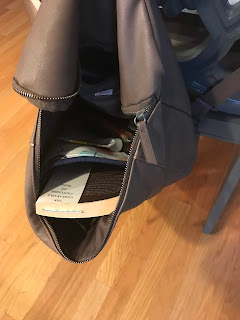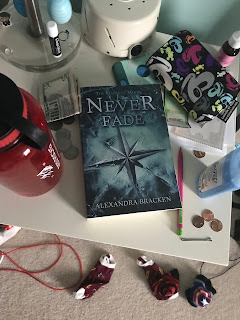I don't dislike the new year; I just don't care about the new year.
If other people want to celebrate it, then good for them, although I have to make a small little snarky remark about its arbitrariness and the fact that most people set ridiculous goals for themselves that they will almost immediately decide are too difficult to actually attain.
It's not that I don't like goal-setting.
I actually do like to set goals, but I think it is better to set goals for things I actually enjoy doing and want to do.
Like reading and traveling.
I've also learned that setting goals sometimes has adverse effects.
A couple of years ago, I set a goal to read 50 books during the year, which sounds like a great "make yourself a better/smarter/more well-rounded person" goal.
The problem was that by September, I was reading books, not for the sheer joy of reading books, but
with the "50 BOOK GOAL" hanging over my head every second.
I did make my goal but it kinda sucked, which I hadn't anticipated.
That was the first and last time I set a quantitative goal for myself related to reading.
Since then, I've set a 1-book goal, selecting a book I haven't read but think would be good for me to read.
Last year was Robert Penn Warren's All the King's Men.
This year, it's another Pulitzer Prize-winner: Gone With the Wind.
I'd like to finish it by spring break, but I've got the entire year.
I don't set lofty goals to do things I don't want to do, like go to the gym.
My goal is to make it to the gym one-time per month since I would be willing to shell out $15 for an hour at the gym if I could just show up and pay-as-I-go. If I end up making it to the gym twice in a month, I've reduced my cost for that hour to $7.50.
I do need to take the Praxis to finish up my high school certification, so I've set a deadline of March. I guess that is a goal, but I've given myself three months to get it done because I'm not eager to do it.
What I don't understand about New Year's resolving is that people seem to forget that THEY ARE STILL THE SAME PERSON with all the idiosyncrasies and oddities and quirks and hangups they had at 11:59 pm.
None of that changes in one minute.
It often feels boring and like I'm downer Debbie being a realist, but there are times, and New Year's is one of them when I'm really rather glad I don't look at the coming 12 months as something amazing and wonderful and dream-fulfilling.
There will almost certainly be moments when it feels like that, and those moments will be surrounded by chores and bullshit and aggravations and boredom and worry.
If other people want to celebrate it, then good for them, although I have to make a small little snarky remark about its arbitrariness and the fact that most people set ridiculous goals for themselves that they will almost immediately decide are too difficult to actually attain.
It's not that I don't like goal-setting.
I actually do like to set goals, but I think it is better to set goals for things I actually enjoy doing and want to do.
Like reading and traveling.
I've also learned that setting goals sometimes has adverse effects.
A couple of years ago, I set a goal to read 50 books during the year, which sounds like a great "make yourself a better/smarter/more well-rounded person" goal.
The problem was that by September, I was reading books, not for the sheer joy of reading books, but
with the "50 BOOK GOAL" hanging over my head every second.
I did make my goal but it kinda sucked, which I hadn't anticipated.
That was the first and last time I set a quantitative goal for myself related to reading.
Since then, I've set a 1-book goal, selecting a book I haven't read but think would be good for me to read.
Last year was Robert Penn Warren's All the King's Men.
This year, it's another Pulitzer Prize-winner: Gone With the Wind.
I'd like to finish it by spring break, but I've got the entire year.
I don't set lofty goals to do things I don't want to do, like go to the gym.
My goal is to make it to the gym one-time per month since I would be willing to shell out $15 for an hour at the gym if I could just show up and pay-as-I-go. If I end up making it to the gym twice in a month, I've reduced my cost for that hour to $7.50.
I do need to take the Praxis to finish up my high school certification, so I've set a deadline of March. I guess that is a goal, but I've given myself three months to get it done because I'm not eager to do it.
What I don't understand about New Year's resolving is that people seem to forget that THEY ARE STILL THE SAME PERSON with all the idiosyncrasies and oddities and quirks and hangups they had at 11:59 pm.
None of that changes in one minute.
It often feels boring and like I'm downer Debbie being a realist, but there are times, and New Year's is one of them when I'm really rather glad I don't look at the coming 12 months as something amazing and wonderful and dream-fulfilling.
There will almost certainly be moments when it feels like that, and those moments will be surrounded by chores and bullshit and aggravations and boredom and worry.





























